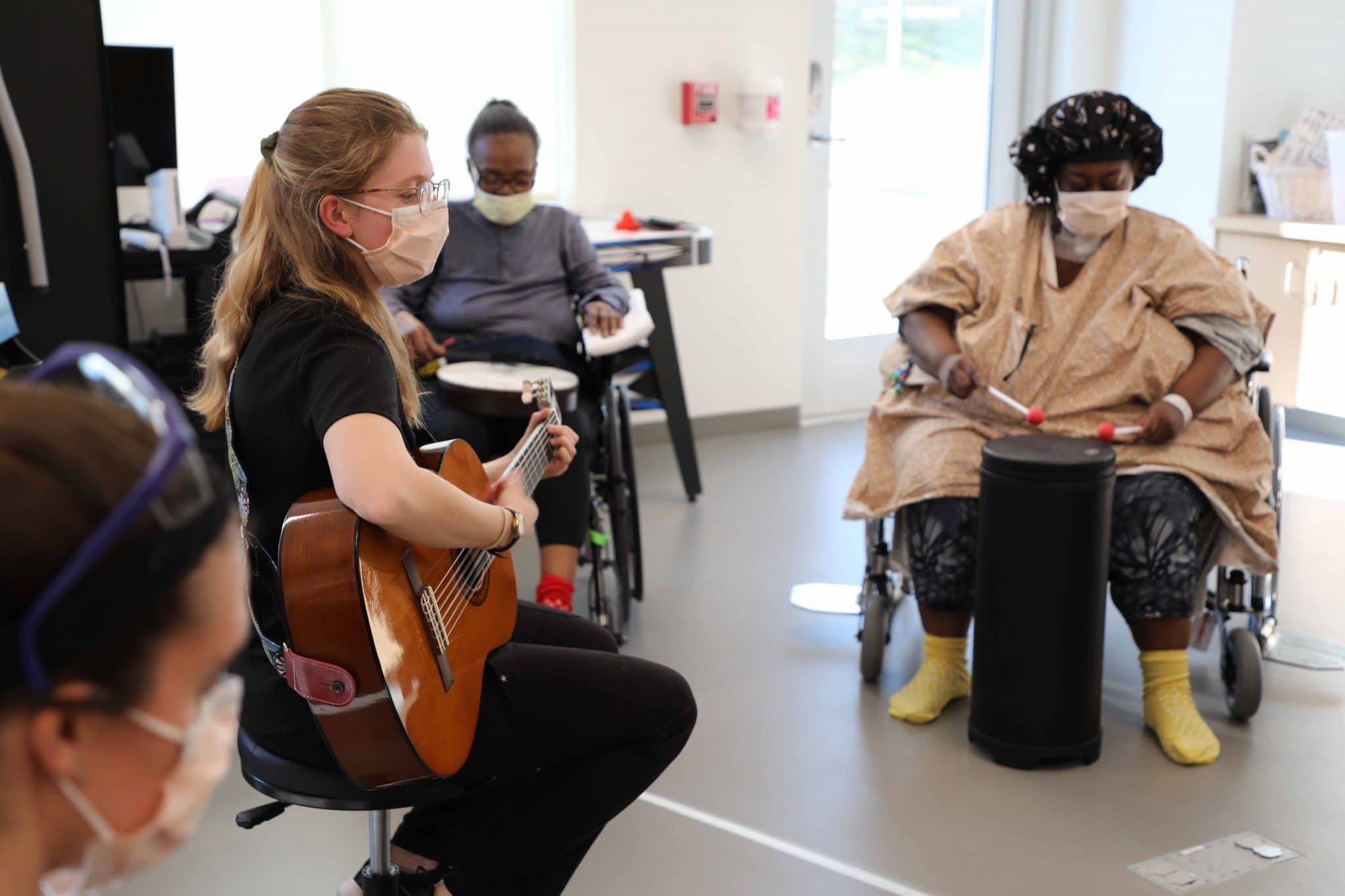MUSIC THERAPY


Throughout life, sound positively and negatively affects our physical and emotional well-being. It affects the bodily functions that we think are beyond our control. These include heart rate, blood pressure, and release of the bod’s natural painkilling chemicals.
Even when people are no longer conscious or speaking, we can consoled and comfort them with music.
Research has shown the music is the first outside sensation that registers with a developing fetus and the last registers with a dying patient.
The use of music to enhance our lives as a means of teaching, celebrating, and expressing ourselves has been in place for thousands of years. During World War II, music was used to calm shell-shocked soldiers. Since then, the introduction of music in a variety of rehabilitation and palliative care settings has steadily increased.
The American Music Therapy Association defines music therapy as “…and established healthcare profession that uses music to address physical, emotional, cognitive and social needs of individuals of all ages.”
Integration of Music Therapists into Hospice Care
- Reminiscence-focus on assets and positive experiences
- Identify and express emotions
- Life review with assessment of actions
- Increased socialization
- Established trust relationship/rapport
- Maintain/improve physical comfort
- Permit discussion around dying/death issues
- Explore religious tradition/musical associations
- Reality orientation/thought organization
- Assessment of physical/mental capabilities
- Support independent thinking/decision making
- Develop effective coping skills
- Improve self-esteem
- Gain insight into problems/situations
- Mood management
- Medium for closure
- Provide distraction during difficult situations/procedures
- Muscle relaxation
- Regain sense of control
- Acknowledgement of spirituality
- Pain relief
- Lyric analysis/discussion
- Singing/instrumental work
- Guided imagery
- Supportive presence with music
- Song writing
- Music relaxation
- Drum work
- Breath work
- Maxing music choices and listening
- Rhythmic movement
- Dancing
